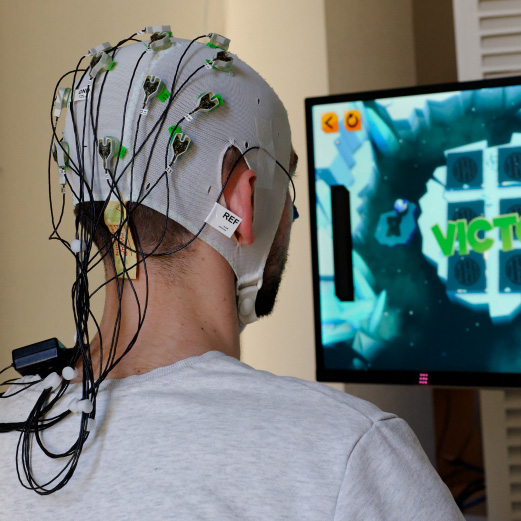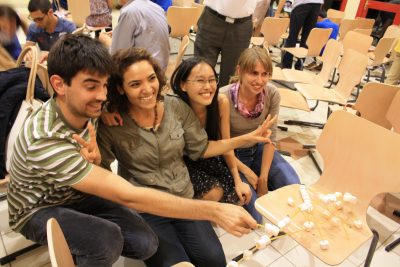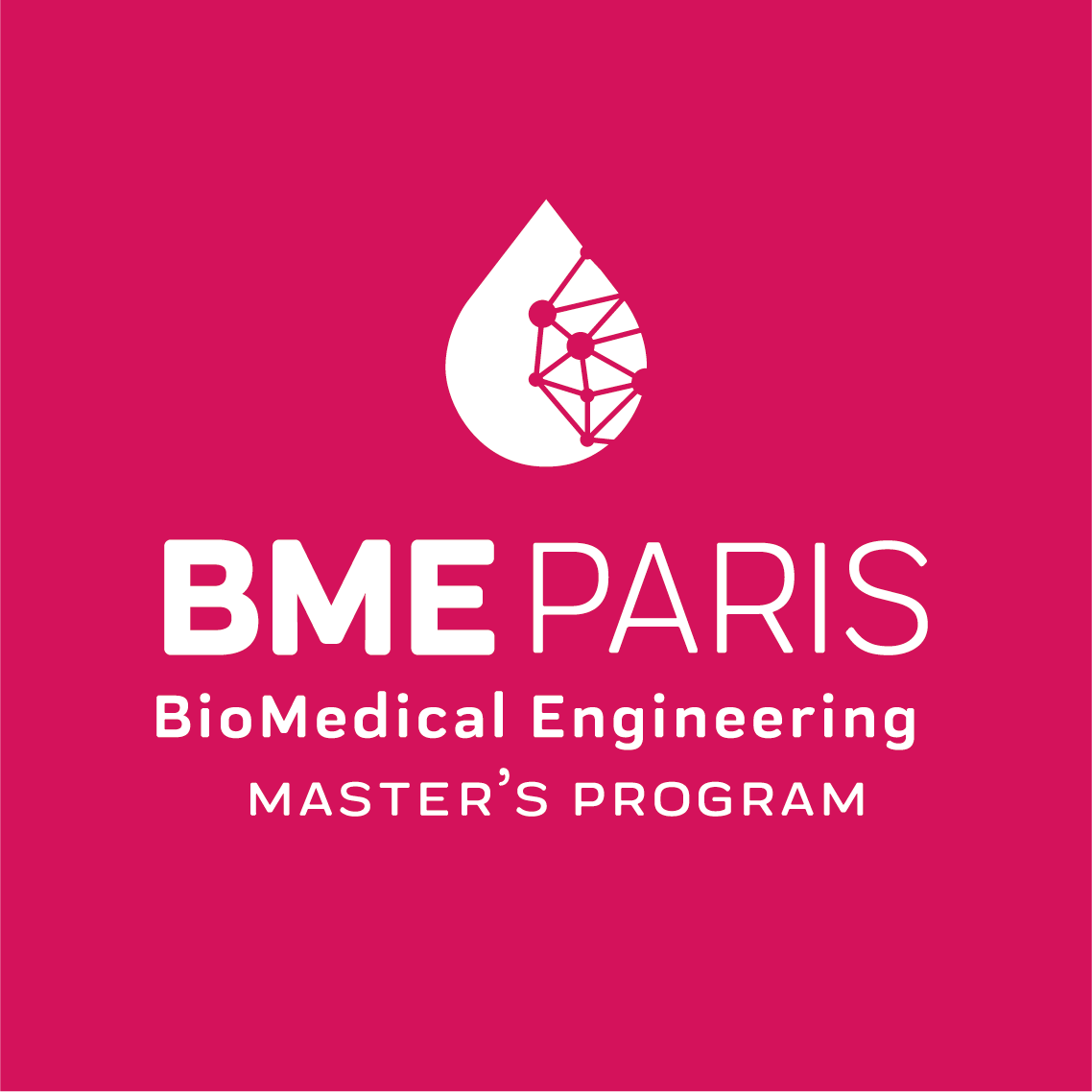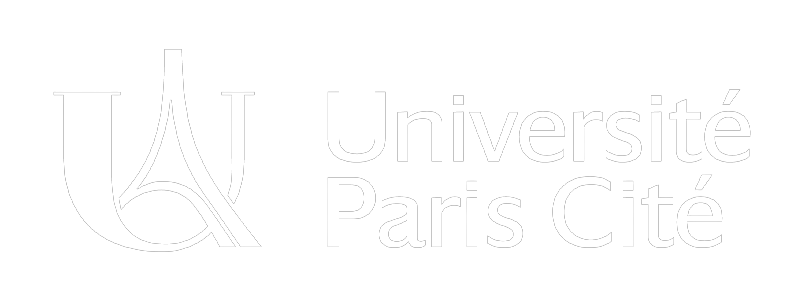NeuroTechnologies
NeuroTechnologies (NeuroTech)
The BME M2 NeuroTech track aims to train scientists, engineers, and medical practitioners in the fundamentals of neuronal engineering, equipping them for applications in academic research, industry, medical research, clinical practice, and societal innovations.

Key Objectives
- Bridge the gap for students with backgrounds in engineering, mathematics, and physics, enabling them to apply their knowledge to neurosciences and technological advancements.
- Offer specialized training for biomedical sciences students focused on neuronal technologies and their applications.
- Provide medical students and interns with the technological expertise necessary for advancements in neurological and mental health care.
The NeuroTech track is an integral part of the broader biomedical engineering master’s program, interconnected with other tracks, and focused on specialized technologies and applications within the neural domain.
Audience
- Students with backgrounds in biomedical sciences.
- Students from engineering schools.
- Students and interns in health sciences (medicine, pharmacy, physiotherapy, etc.).
Motivation
With the increasing availability and power of neuronal technologies, the NeuroTech track addresses the growing need to understand the brain, monitor and diagnose health conditions, prevent or treat neural and mental disorders, restore neurological functions, and facilitate communication and interaction with the nervous system. These technologies have diverse applications, primarily in healthcare, but also extend to key industrial sectors such as transportation, machinery, and robotics, as well as the emerging leisure industry. There is a significant demand for engineers, scientists, and health practitioners trained in neural technologies, with a strong emphasis on health-related applications, while also encompassing other fields of interest
Overview of the Program’s Structure
The program is designed for biomedical and engineering students, while a dedicated sub-track with an adapted curriculum is proposed for medical and other health science students.
Neurotechnologies for health applications involve three fundamental domains of training for any neural engineering graduate:
- Knowledge about the brain, nervous systems, and the functions they ensure.
- Understanding of neurological and mental disorders and diseases through the lens of neuroscience.
- Expertise in technologies used to investigate the nervous system and interact with it.
This core program includes mandatory courses on neurosciences, health, and neural engineering, providing the foundations for a neuro-engineering seminar that explores state-of-the-art applications. The mandatory curriculum also includes transdisciplinary projects in biomedical engineering innovation and an ethics workshop, which is transversal with the other tracks of the master’s program. Students can further specialize through optional courses.
Targeted Professional Domains for Graduates
- Academic research : PhD
- Neurology and mental health practice and research (medical students)
- Translational research
- Industry:
- Research and development
- Clinical research
- Innovation and technological transfer
- Business development
- Start-ups
Courses
Courses are structured into 3 or 6 ECTS Teaching Units T.U, where 3 ECTS counts for with maximum 25 hours of presence time of students and an estimated 60 hours of additional personal work. 30 ECTS are required to validate a semester
Semester 3
Mandatory courses (24 ECTS)
Course Title: Advanced Neurosciences for engineering
Description: The course deals with the scientific bases necessary for technological approaches to health issues in neurology and mental health. Recognizing the diversity of students’ backgrounds, the course offers a flexible structure that allows for either an in-depth exploration of foundational neurosciences or a focus on computational approaches in neurosciences. The core program consists in two parts:
- The Brain and the Nervous System: Covers the structure and physiology of the central and peripheral nervous systems, and the spinal cord at all scales. Topics include neuroanatomy, neural cells, neurotransmission, and action potentials.
- Brain Functions: Discusses the sensory and motor systems, speech, cognition, vigilance, memory and learning, and social interactions.
Students with a proven solid background in foundational neurosciences can opt for a personalized computational neuroscience study and project. This option allows students to develop or deepen their mathematical, modeling, and programming skills in computational neurosciences. This option is eligible following examination of the candidates’ skills and curriculum.
Key words: neuroscience, brain, nervous system, sensory-motricity, cognition
Total number of hours: 48 Number of ECTS: 6 Semester 1
Mandatory course ☐ Optional course ☐
Prerequisites/skills needed: Introductory Biology (Recommended) – General understanding of biological systems, especially the nervous system. Interest in Interdisciplinary Learning.
Teaching methods and activities: lectures (CM), practical sessions (TD)
Location: Université Paris Cité, Campus-Saint-Germain-des-Prés
Course supervisor: Eleni SIOPI (Associate Professor), Chloé BERLAND (Associate Professor)
Course Title: Neural and Mental Health
Description: This course provides fundamental knowledge on major classes of neurological and mental disorders. It also introduces non-medical students to the realities of patient interactions, issues, and expectations for neuronal engineering contributions to diagnosis, treatment, rehabilitation, and prevention.
Students with a proven solid medical background have the possibility to instead follow other BME courses, for instance in data science or digital health.
Key words: neurological disorders, mental disorders, diagnosis and rehabilitation, neuroengineering
Total number of hours: 24 Number of ECTS: 3 Semester 1
Mandatory course ☒ Optional course ☐
Prerequisites/skills needed: Introductory Biology (Recommended) – General understanding of biological systems, especially the nervous system. Interest in Interdisciplinary Learning – Openness to integrating medical and technological perspectives.
Teaching methods and activities: lab sessions (TP)
Location: Université Paris Cité, Campus Saint-Germain-des-Prés
Course supervisor: Clément DUBOST ( Professor), Pierre BOURDILLON (MD)
Course Title: Neuroengineering
Description: This course covers the fundamental technologies for neurosciences and involving the nervous system. It is divided into three parts:
- Monitoring and Recording in Neurosciences: Observing and recording the nervous system, monitoring, and recording behavior and physiological data.
- Data, Signal Processing, and Analysis for Neurosciences: Covers signals, images, filtering, feature extraction, and the fundamentals of machine learning and AI.
- Stimulating and Interfacing with the Nervous System: Fundamentals in BCI (Brain-Computer Interfaces), Deep Brain Stimulation, and Neuroprosthetics.
Key words: neurotechnologies, neuroengineering, EEG, MEG, fMRI, EcoG, BCI
Total number of hours: 48 Number of ECTS: 6 Semester 1
Mandatory course ☒ Optional course ☐
Prerequisites/skills needed: Basic understanding of engineering principles or physical sciences. Introductory knowledge of biology or neuroscience is helpful but not required. Familiarity with programming or computational tools, such as MATLAB or Python, is advantageous. Interest in interdisciplinary applications of technology and medicine.
Teaching methods and activities: Lectures (CM)
Location: Université Paris Cité, Campus-Saint-Germain-des-Prés
Course supervisor: Selim ESKIIZIMIRLILLER (Associate Professor), Pavel LINDBERG (Researcher)
Course Title: Advanced Topics in Neurotechnology
Description: This seminar-style course explores the latest research and developments in neurotechnology, offering students a platform to engage critically with emerging trends and innovations. Through readings, presentations, and discussions, participants deepen their understanding of current advancements and future directions. Topics include sensory and motor supplementation, deep brain stimulation, neurofeedback, diagnostic systems, neuro-inspired engineering, and sports. Students actively contribute by preparing and presenting seminars under the guidance of research staff, fostering critical thinking and collaborative learning.
Key words: Neurotechnology, critical thinking, Seminar engagement
Total number of hours: 24 Number of ECTS: 3 Semester 1
Mandatory course ☒ Optional course ☐
Prerequisites/skills needed: Basic understanding of neuroscience or engineering principles. Basic understanding of neural and mental health issues. Interest in interdisciplinary approaches to technology and healthcare. Familiarity with research methodologies or academic literature review is advantageous. The background for this course will be gained though the “Foundations in…” courses of the program.
Teaching methods and activities: Lectures (CM), other: Students’s seminars and discussions
Location: Université Paris Cité, Campus Saint-Germain-des-Prés
Course supervisor: Samuel BOTTANI (Professor), Florian WASZACK (Researcher)
Semester 4
Mandatory courses (30 ECTS)
Course Title: Ethical, Industrial and Environmental aspects in biomedical enginnering
Description: This UE aims at giving an introduction to the economical and industrial aspects of biomedical engineering. Based on current main regulations and standards, it addresses questions such as regulatory registration, certification, intellectual property, resources planning and allocation (time, financial), environmental (management of product lifetime cycle and environmental footprint) and social concerns (ethical work policy and consideration of geopolitical environment), and project management. Several examples including real industrial projects are used to illustrate the course. The course offers theoretical lectures and a group project to apply those concepts
Key words: Industry, regulation, business planning
Total number of hours: 20 Number of ECTS: 3 Semester 4
Mandatory course ☒ Optional course ☐
Prerequisites/skills needed: None
Teaching methods and activities: lectures (CM), practical sessions (TD)
Location: ENSAM
Course supervisor: Guillaume DUBOIS (PRAG), Claudio VERGARI (Professor)
Course Title: Research Internship
Description: The internship module represents a full-time commitment of 27 ECTS during the second semester, offering practical application of theoretical knowledge within a research laboratory setting—either academic or industry-based. As part of a science master’s program, internship projects inherently involve scientific research addressing fundamental and applied questions. The overarching aim is to cultivate essential skills, transforming you into a young scientist – a trained specialist capable of:
- Formulating insightful research questions
- Applying rigorous methodologies to comprehend phenomena and processes, both foundational and applied
- Contributing to the advancement of knowledge and technology through a profound understanding of natural and artificial mechanisms.
This focus distinguishes our program from solely engineering-oriented internships. Our goal is to nurture applied research scientists who contribute meaningfully to the expansion of knowledge and technological innovation through a deeper comprehension of both natural and artificial systems.
Total number of hours: – Number of ECTS: 27 Semester 4
Mandatory course ☒ Optional course ☐
Prerequisites/skills needed: First semester of the master’s program
Keywords: Internship, Applied research, Research training, Early stage researcher
Teaching methods and activities: mentoring by internship supervisor(s)
Exact location: ENSAM
Course supervisors: Samuel BOTTANI (Professor), Chloé BERLAND (Associate Professor), Clément DUBOST (Professor), Diana ZALA (Reasearcher)
Elective courses during the Semester 3
Students are required to select two elective 3 ECTS courses from the following options. Two predefined combinations ensure compatibility in terms of content and scheduling. The first combination, focusing on « Neuro-Imaging and Models, » consists of the courses « Neuroimaging » and « Biological Models in Neuroscience. » The second combination, exploring « Neuro Control and Sensory-Motricity, » includes the courses « Digital Technologies for Neurosciences » and « Neural Control of Posture and Motricity. » In addition to these two guaranteed combinations, students can also opt for other pairings that meet schedule compatibility requirements. This may include one external course, pending acceptance. Elective course selections must be made during the application process and confirmed following the admission interview.
Course Title: Quantification for Neuroimaging
Description: The module is common with the Bioimaging track of the program. The course aims at providing students with an insight on advanced methods in data modelling and analysis as used in neuroimaging research labs. The methods are selected to present four differents aspects of brain acitivity and connectivity: – diffusion MRI and tractography – activation fMRI and activation networks – resting state fMRI and resting state connectivity – Magneto Encephalography and source reconstruction Each lecture starts with a presentation of the critical theoretical knowledge regarding the neuroimaging modality, the specificities of the generated data, and the methodology for image analysis. Then, praticals on state-of-the-art softwares and real datasets provide hands-on experience of data processing. This interplay between theory and practice teaches students how to apply their knowledge and skills to handle cutting-edge methods applied to neuroimaging data and how to consider the limitations of such methods and their impact on the interpretation of results. Critically, the lectures present various methodological developments to overcome these issues (artifact correction, bias modeling,…).
Key words: Functional MRI, Electroencephalography, Magnetoencephalography
Total number of hours: 20 Number of ECTS: 3 Semester 1
Mandatory course ☐ Optional course ☒
Prerequisites/skills needed: Linear algebra, Basic programming skills (Matlab or Python)
Teaching methods and activities: Lectures (CM), practical sessions (TD), other specify: personal assignment
Location: Université Paris Cité, Campus Saint-Germain-des-Prés
Course supervisor: Sylvain CHARRON
Course Title: Biological models in neuroscience
Description: This course explores diverse biological and technological modeling approaches used in neuroscience research. Topics include animal models, microfabrication-based in vitro cultures, brain organoids, and computational models such as digital twins. The course examines the applications, strengths, and limitations of animal models, as well as alternative methods for studying neurological function and disease. It also delves into the development of brain organoids, their potential research applications, and the challenges they face. Additionally, the course considers the contributions of computational modeling in substitution or in supplementing of experimental approaches.
Key words: Animal Models, Brain Organoids, Microfabrication-based Cultures,
Total number of hours: 24 Number of ECTS: 3 Semester 1
Mandatory course ☐ Optional course ☒
Prerequisites/skills needed: Introductory knowledge of biology or neuroscience. Familiarity with basic engineering or computational principles. Interest in experimental and modeling approaches. Willingness to engage with interdisciplinary and translational research topics.
Teaching methods and activities: Lab sessions (TP)
Location: Université Paris Cité, Campus Saint-Germain-des-Prés
Course supervisor: Jean-Michel PEYRIN (Researcher), Diana ZALA (Researcher)
Course Title: Digital Technologies for Neurosciences
Description: Advances in fundamental and pre-clinical neurosciences rely heavily on the integration of continuous monitoring techniques that capture various aspects of individuals’ (animal or human) behavior, including video, audio, movement, physiological signals, neural activity, and muscular electrical signals. Concurrently, experimental designs and therapeutic approaches leverage digital technologies to control stimuli and environments, such as virtual reality (VR), augmented reality (AR), and simulated scenarios. This course delves into the latest techniques and methodologies for studying and interacting with the human (or animal) body and nervous system. By providing insights into cutting-edge technologies and data analysis strategies, it empowers students to effectively apply multi-modal approaches to neural, behavioral, and physiological processes.
Key words: Virtual Reality (VR), Augmented Reality (AR), Multi-modal Monitoring, Neural Activity Analysis, Signal Processing
Total number of hours: 24 Number of ECTS: 3 Semester 1
Mandatory course ☐ Optional course ☒
Prerequisites/skills needed: Basic knowledge of neuroscience or physiology. Familiarity with digital tools or data analysis techniques. Interest in technology-driven approaches to neuroscience research.
Teaching methods and activities: Lab sessions (TP), Lectures (CM)
Location: Université Paris Cité, Campus Saint-Germain-des-Prés
Course supervisor: Floren COLLOUD (Professor)
Course Title: Neural control of posture and motricity
Description: Advances in fundamental and pre-clinical neurosciences rely heavily on the integration of continuous monitoring techniques that capture various aspects of individuals’ (animal or human) behavior, including video, audio, movement, physiological signals, neural activity, and muscular electrical signals. Concurrently, experimental designs and therapeutic approaches leverage digital technologies to control stimuli and environments, such as virtual reality (VR), augmented reality (AR), and simulated scenarios. This course delves into the latest techniques and methodologies for studying and interacting with the human (or animal) body and nervous system. By providing insights into cutting-edge technologies and data analysis strategies, it empowers students to effectively apply multi-modal approaches to neural, behavioral, and physiological processes.
Key words: Neural Processing, Biomechanics, Motor Control, Movement Pathologies, Neuronal Engineering.
Total number of hours: 24 Number of ECTS: 3 Semester 3
Mandatory course ☐ Optional course ☒
Prerequisites/skills needed: Basic understanding of neuroscience or physiology. Familiarity with biomechanics or motor systems. Interest in the technological and clinical aspects of movement regulation.
Teaching methods and activities: Lab sessions (TP), Lectures (CM)
Location: ENSAM
Course supervisor: Floren COLLOUD (Professor)
Under construction





